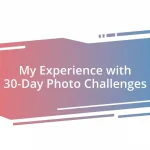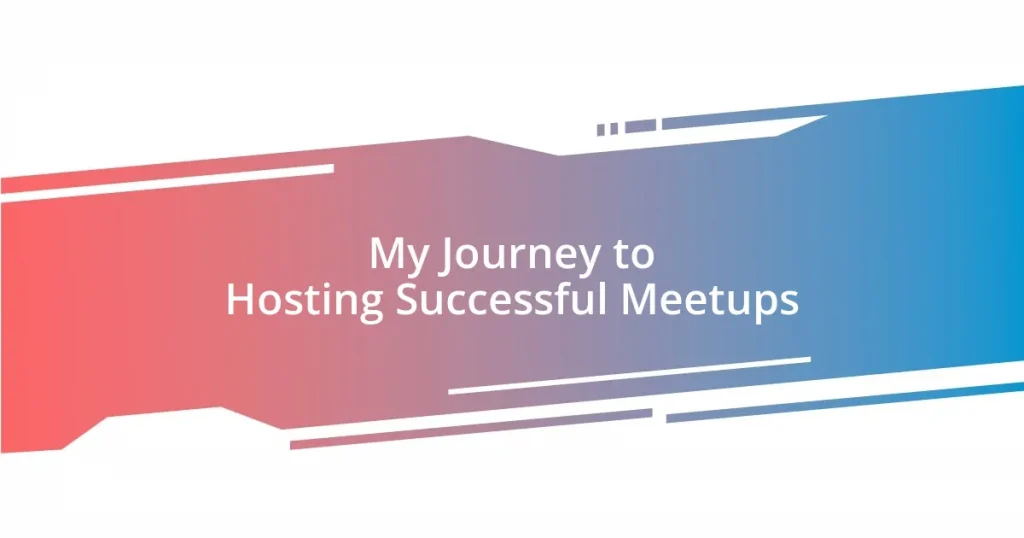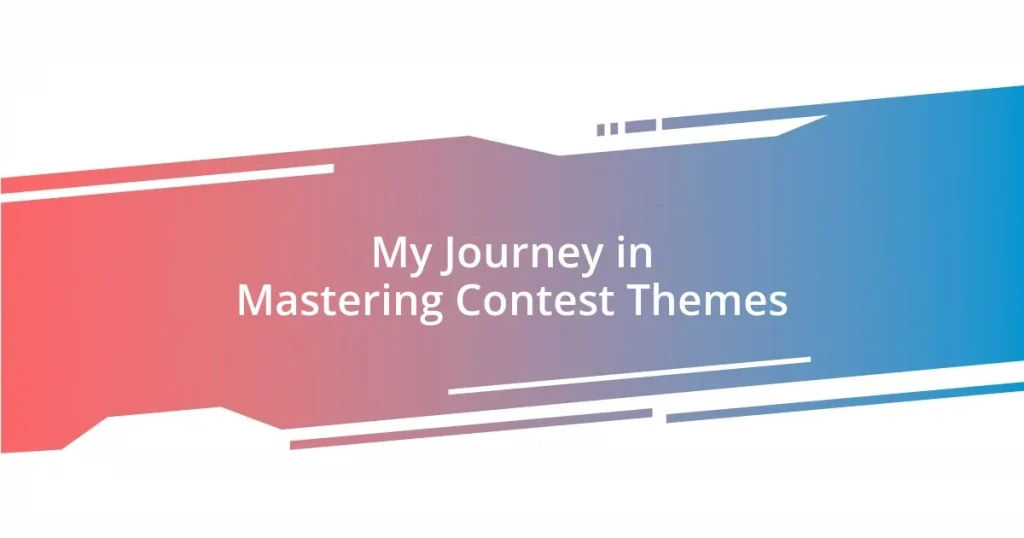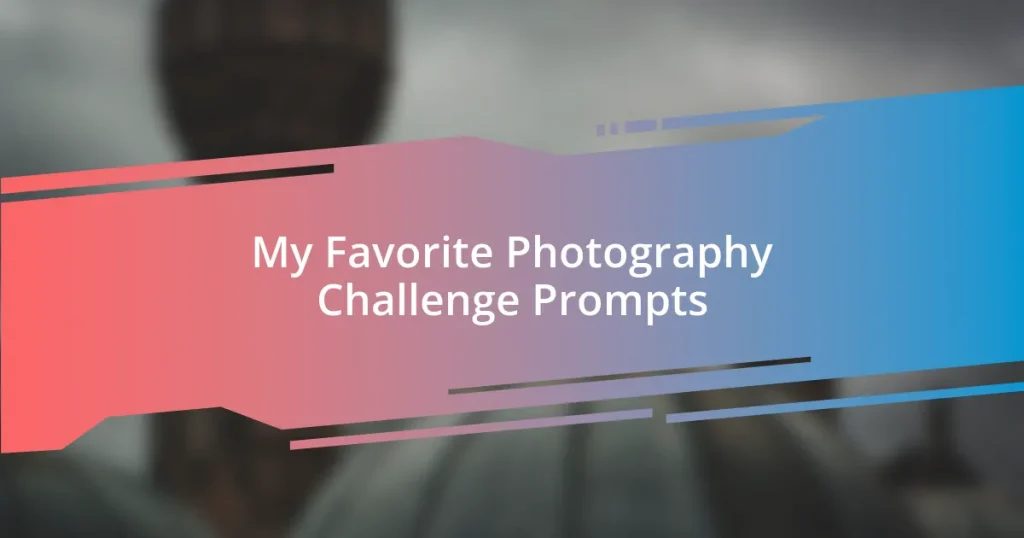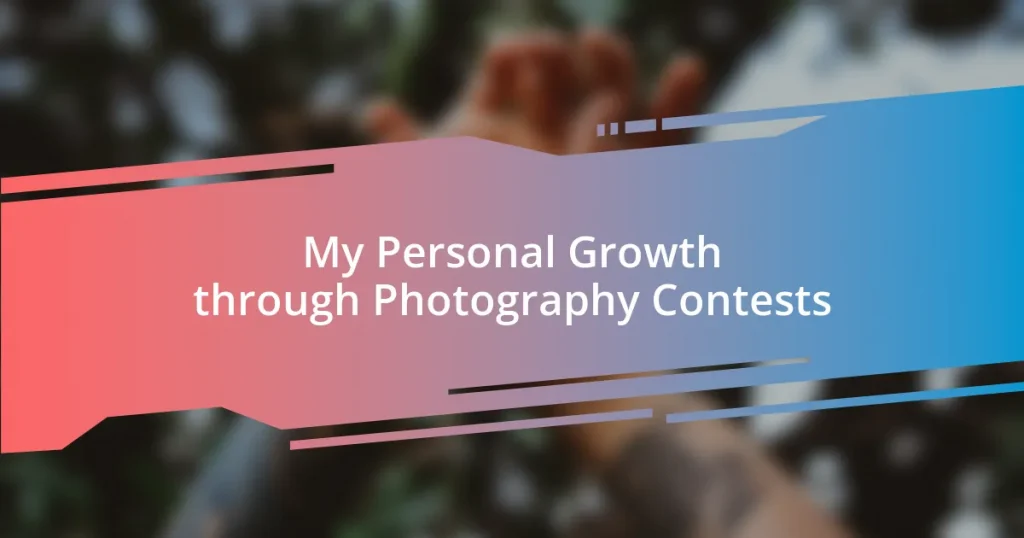Key takeaways:
- Hosting meetups fosters genuine connections and a sense of community, transforming both hosts and attendees.
- Understanding your audience’s preferences and feedback is crucial for tailoring content and improving future events.
- Choosing the right venue enhances the atmosphere and accessibility, impacting overall attendee experience.
- Effective promotion through social media, email marketing, and partnerships significantly increases event visibility and attendance.
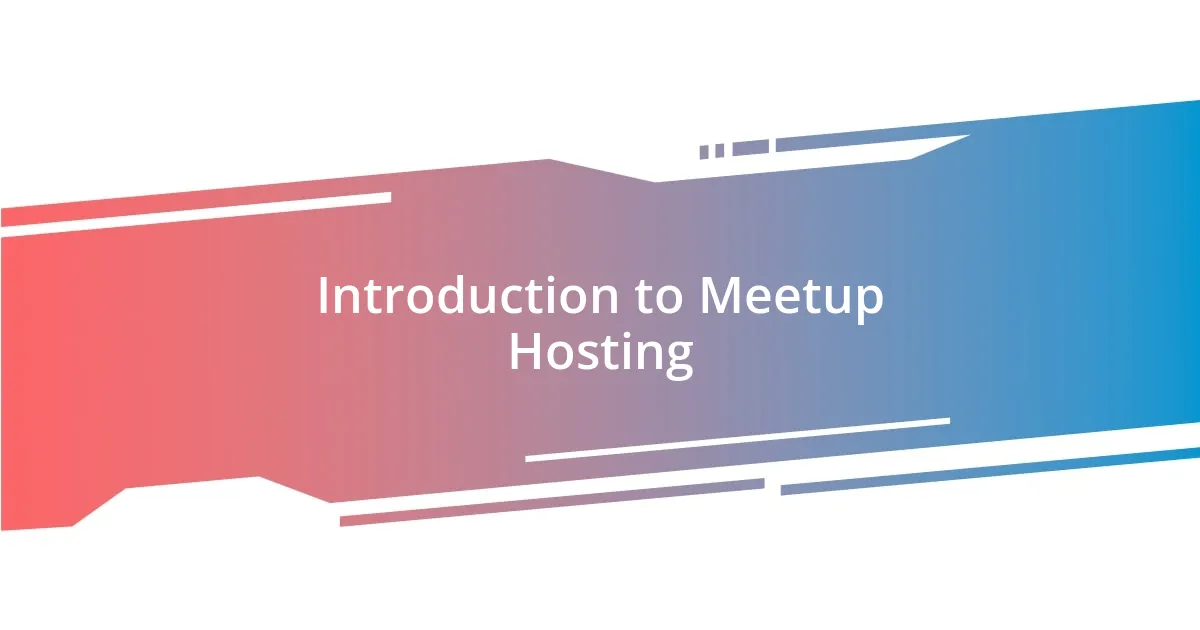
Introduction to Meetup Hosting
Hosting a successful meetup can be a transformative experience, both for you and your attendees. I remember my first meetup vividly; I was a bundle of nerves, wondering if anyone would even show up. The thrill came when I opened the door and saw a group of eager faces ready to connect and share.
What makes hosting meetups so rewarding is the genuine connections formed in a relaxed atmosphere. Have you ever thought about how it feels to bring like-minded people together? There’s an undeniable joy in creating a space where ideas can flourish and friendships can blossom. It’s more than just organizing a gathering; it’s about fostering a sense of community.
As you embark on your journey into meetup hosting, keep in mind that every event is a chance to learn and grow. From the excitement of planning to the unpredictable moments during the event, each step is filled with invaluable lessons. I’ve found that the best meetups are those where I embrace the unexpected, allowing for spontaneous conversations that often lead to the most memorable experiences.
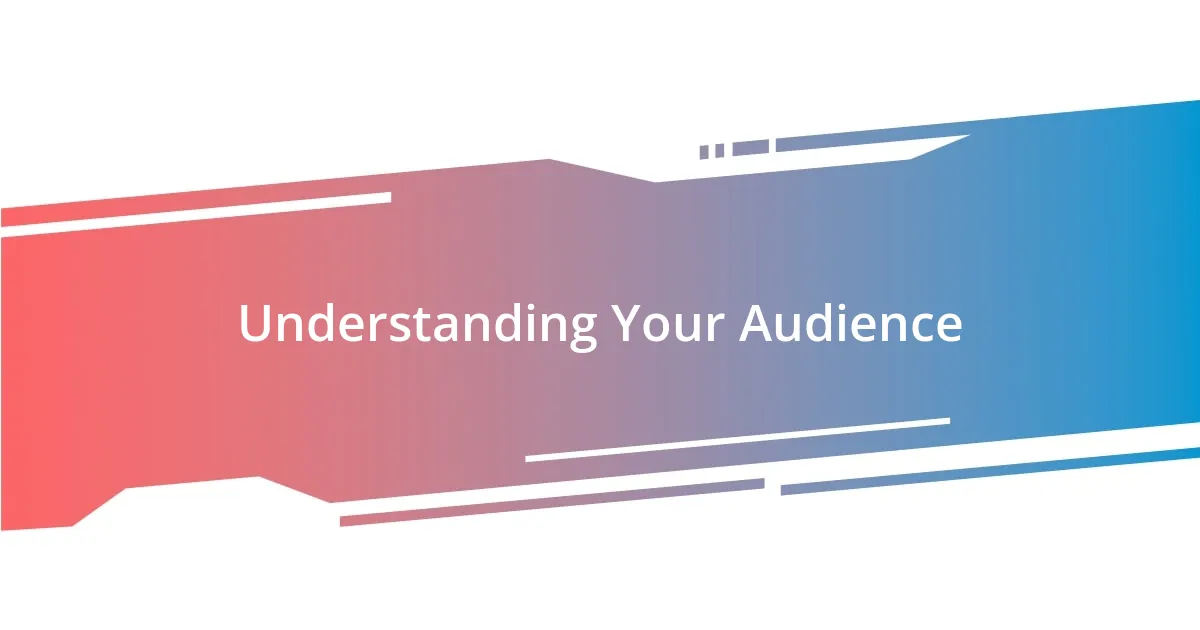
Understanding Your Audience
Understanding your audience is crucial for the success of any meetup. I still remember the time I underestimated the preferences of my attendees. I had planned a workshop-style event, assuming that everyone would appreciate a structured approach. To my surprise, the group craved open discussion instead, and the atmosphere shifted when I adapted. Listening to your audience’s needs and desires can make a world of difference.
To truly grasp your audience, consider these key factors:
- Demographics: Understand age, profession, and interests to tailor your content.
- Goals: Identify what they hope to gain from attending your meetup.
- Communication Style: Recognize how they prefer to interact—whether casual chat or formal presentations.
- Feedback: Encourage suggestions pre- and post-event to refine your future meetups.
- Engagement: Observe which topics spark the most enthusiasm and adjust accordingly.
When I started regularly engaging with my attendees after each meetup, I noticed not only an uptick in attendance but also a deeper connection to the community I was building. Adjusting my approach based on their feedback made them feel valued and ensured that our meetups continued to thrive.
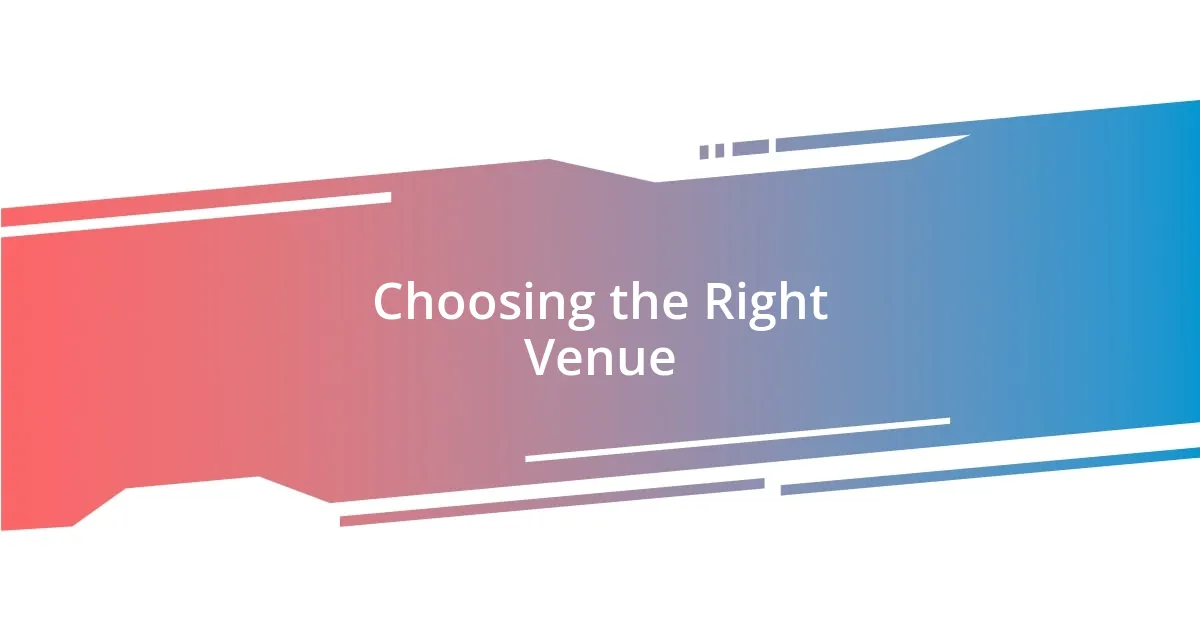
Choosing the Right Venue
Choosing the right venue can dramatically influence the mood and success of your meetup. I once held an event in a spacious community center that felt more like a gym than a gathering place. The echoes of conversations bounced off the walls, making it hard for us to connect. A cozy café or a well-arranged library could have fostered a better atmosphere for genuine interactions, showcasing how the right space truly matters.
When considering a venue, I’ve learned to prioritize accessibility and comfort. A great location is not just about the aesthetics; it’s about ensuring that everyone can easily reach it. I vividly recall scheduling a meetup in an obscure office building. Although it was a lovely space, very few attendees showed up due to its inconvenient location. Now, I always think about my audience’s needs and preferences first—location, seating arrangements, and even lighting can drastically affect their experience.
Lastly, I evaluate the available amenities the venue offers. When I hosted a tech meetup, I appreciated having available screens and projectors, which turned out to be a game-changer for presentations. Sometimes, you might need to ask specific questions—like, does the venue offer Wi-Fi? Are there breakout spaces for smaller discussions? Having these details cleared can save you from potential hiccups, allowing you to focus on what matters most: connecting with your attendees.
| Criteria | Community Center |
|---|---|
| Accessibility | Often far from public transport |
| Atmosphere | Can feel impersonal and echoing |
| Amenities | Basic facilities, limited tech support |
| Café | Small Event Space |
| Accessibility | Located in a central area, easy to access |
| Atmosphere | Warm, inviting, encourages conversation |
| Amenities | Wi-Fi, projectors available, comfy seating |
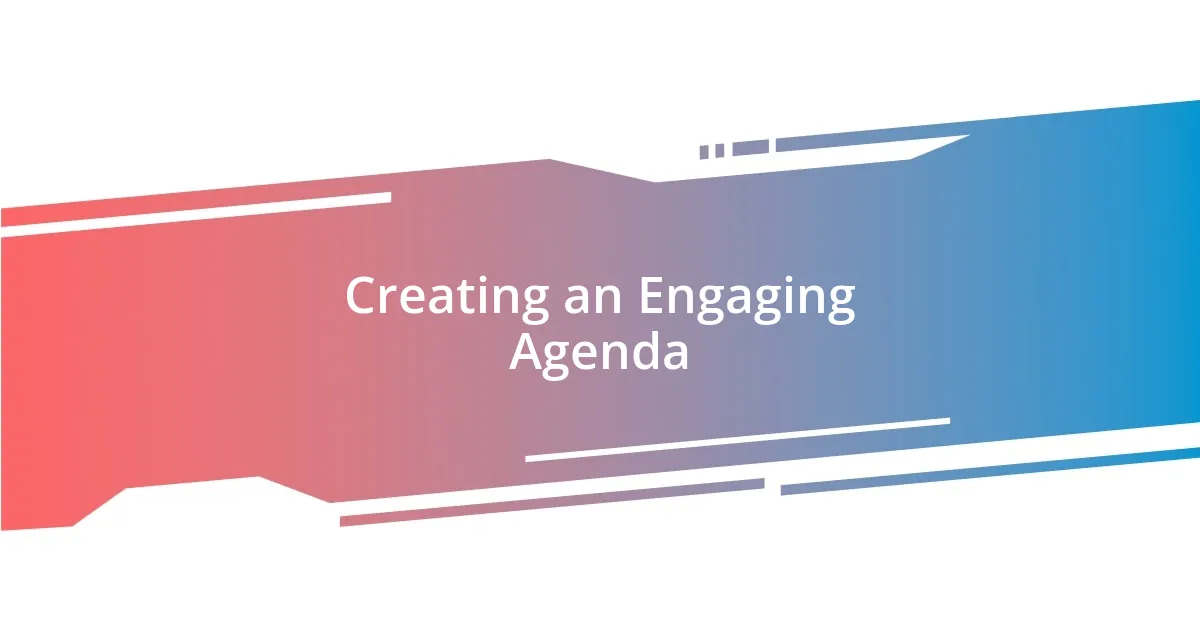
Creating an Engaging Agenda
Creating an engaging agenda is essential for holding your attendees’ attention and fostering meaningful conversations. I remember when I first crafted an agenda filled with numerous presentations and few interactive activities. By the end, people had lost interest, and the energy in the room was flat. It wasn’t until I incorporated brainstorming sessions and open discussions that the atmosphere transformed, sparking genuine excitement among participants. Have you ever noticed how a change in format can shift the entire vibe of a meetup?
When laying out the agenda, I find it helpful to intersperse various formats—such as keynote speeches, panel discussions, and breakout sessions. This variety not only keeps engagement levels high but also allows participants to share their insights and experiences. I learned this the hard way during a meetup where I jam-packed the schedule without considering different styles of learning and interaction. Attendees appreciated the shift once I incorporated smaller group discussions, which allowed them to engage more deeply with the material and each other.
Another critical aspect is to allow for flexibility within your agenda. I’ve had occasions where an impromptu Q&A session sparked unexpected discussions that enriched the meetup experience. By creating space for spontaneity, you invite a more dynamic and responsive environment. Just ask yourself: how often do your best ideas come from those unplanned moments? Recognizing this can transform your gatherings from scripted events into vibrant, organic experiences that attendees truly cherish.
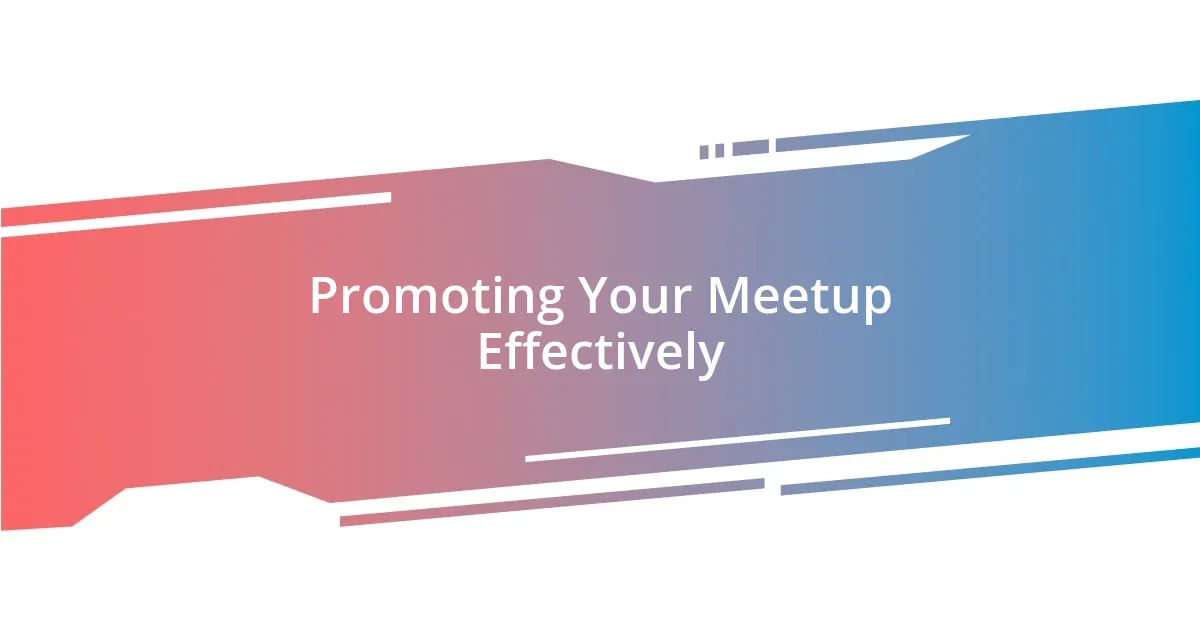
Promoting Your Meetup Effectively
When it comes to promoting your meetup effectively, I can’t stress enough the power of social media. I vividly recall a meetup I organized where I relied solely on word of mouth. It was a learning moment when only a handful showed up. Since then, I’ve embraced platforms like Facebook and Instagram to reach a broader audience and create engaging event pages. These platforms allow me not just to share event details, but to build excitement through images, polls, and teasers. Have you ever considered how a vibrant social media presence can spark interest before your event even begins?
Email marketing is another tool I’ve found invaluable. After one event where I gathered email addresses for the first time, I crafted a follow-up campaign that highlighted upcoming meetups and featured attendee testimonials. The response was overwhelming! People appreciated the personalized touch, which also encouraged them to invite friends. By segmenting my audience based on interests, I’ve been able to tailor messages and ensure my meetups resonate with different groups. That moment of connection reinforces the community aspect, making attendees feel valued.
Lastly, never underestimate the power of partnerships. Collaborating with local organizations has been a game-changer for me. I remember teaming up with a local bookstore to host a book-themed meetup. Not only did they promote the event to their customer base, but they also provided a cozy atmosphere that made everything feel special. The synergy of shared promotion and aligned goals can elevate your event’s visibility exponentially. Have you thought about local businesses or groups that align with your meetup’s theme? You might be surprised by the partnerships waiting to happen!
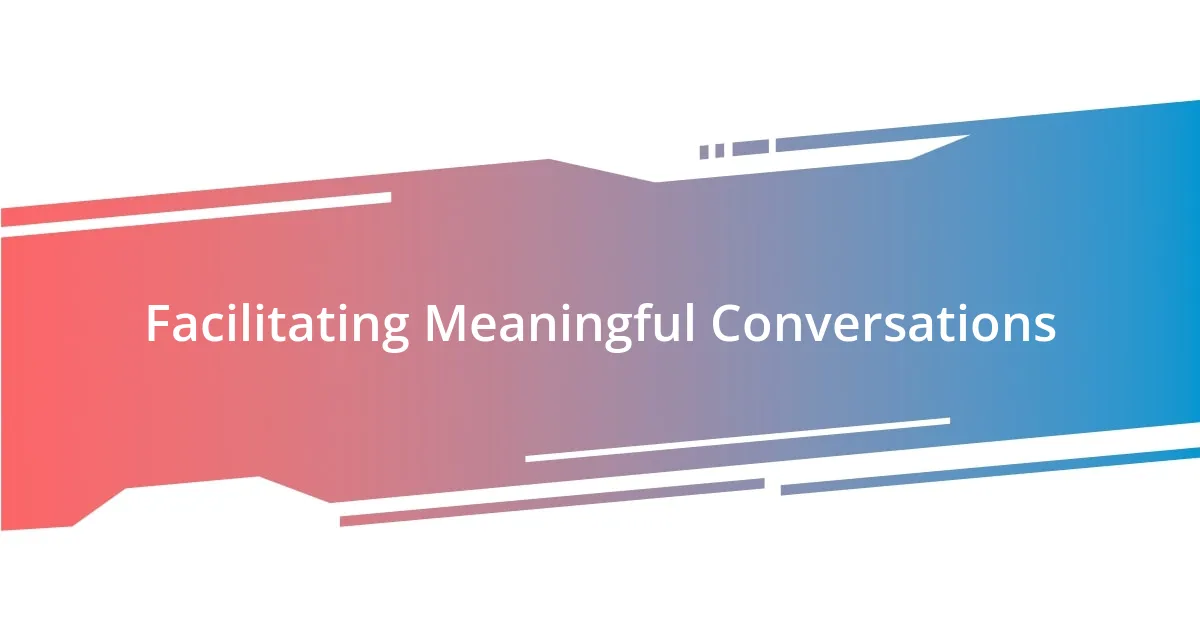
Facilitating Meaningful Conversations
Facilitating meaningful conversations starts with creating a welcoming environment. I’ve experienced firsthand the difference a comfortable setup can make. The last time I hosted a meetup, I arranged the seating in a circle instead of traditional rows; it felt more intimate, and the energy shifted instantly. Have you ever found yourself feeling more at ease in a casual setting? It’s amazing how such small changes can encourage attendees to share more openly.
Active listening is another key element in fostering these conversations. I strive to demonstrate genuine interest in what others are saying, which I believe sets the tone for deeper discussions. During one meetup, I made it a point to acknowledge every speaker’s contribution, and the atmosphere became electric with shared ideas. People began to build on each other’s thoughts rather than just waiting for their turn to speak. This small shift—encouraging a back-and-forth dialogue rather than a series of monologues—turned a standard discussion into a rich tapestry of insights.
Lastly, asking open-ended questions can unlock valuable conversations. I remind myself to avoid simple yes-or-no questions, as they can stifle dialogue. Instead, I often ask participants how a particular theme resonates with their experiences. One time, I posed a question about overcoming challenges in our respective fields, and the room buzzed with energetic exchanges and personal stories. It’s moments like these that create connections and transform participants from mere attendees into an engaged community. Have you ever noticed that some of the most memorable takeaways come from those unexpected discussions? Encouraging this type of interaction can lead to insights that resonate long after the meetup ends.
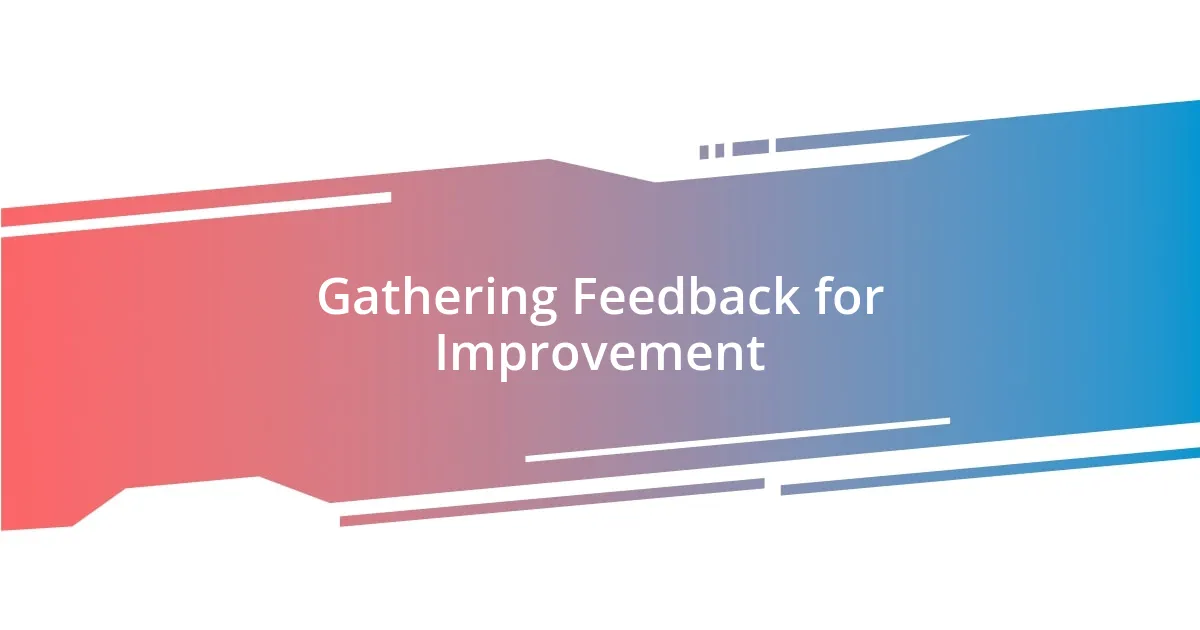
Gathering Feedback for Improvement
Gathering feedback after each meetup has become a crucial part of my process. I learned this lesson the hard way during an early event when I didn’t take the time to ask attendees about their experiences. I still remember the feeling of uncertainty as I left the venue, wishing I had a gauge to measure the event’s success. Now, I utilize simple post-event surveys, often with a free tool like Google Forms, to capture insights and suggestions while the experience is still fresh.
What I’ve discovered is that encouraging honest feedback creates a culture of improvement. The last time I asked for thoughts, I was pleasantly surprised by the depth of responses. Attendees expressed what they loved and what could be enhanced. One particularly eye-opening suggestion was to extend networking time, which inspired me to adjust future agendas. Have you ever received unexpected feedback that opened your eyes to new possibilities? It can be quite revealing!
I also make it a point to have informal check-ins with participants after meetups. These spontaneous conversations often yield gems of information that surveys might miss. I remember chatting with a newcomer who shared her hesitation about fully engaging due to shyness; her perspective helped me realize the importance of creating more structured introductions for future events. Engaging in this manner not only helps improve the meetup experience but also fosters deeper connections within the community. It’s fascinating how mutual growth can emerge from simply being open to listening and adapting.




